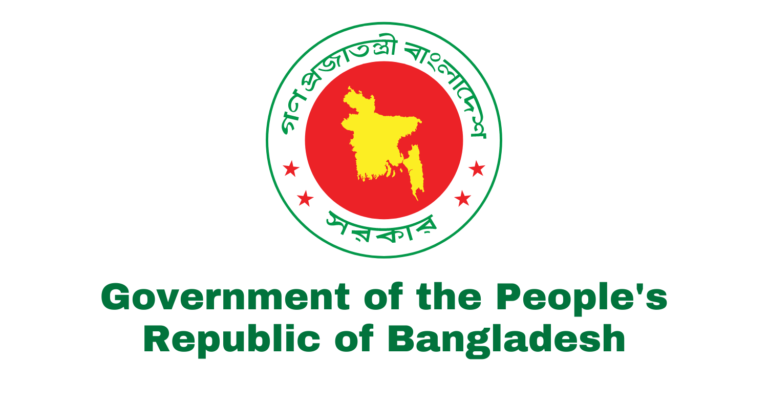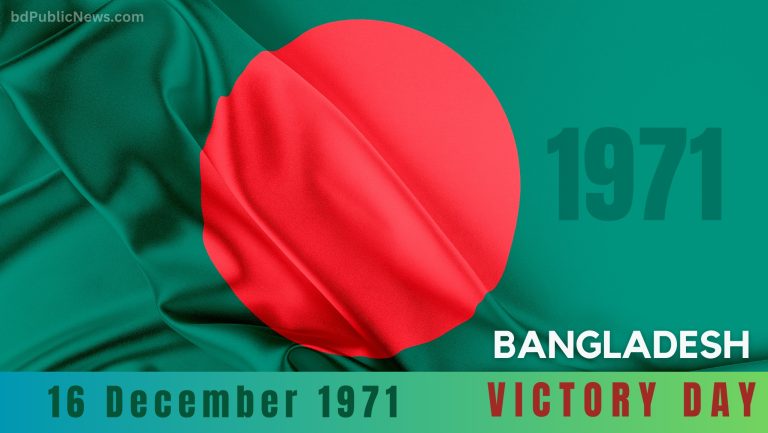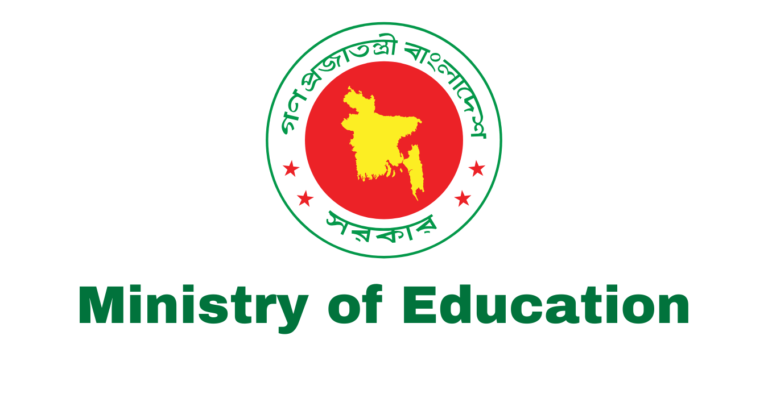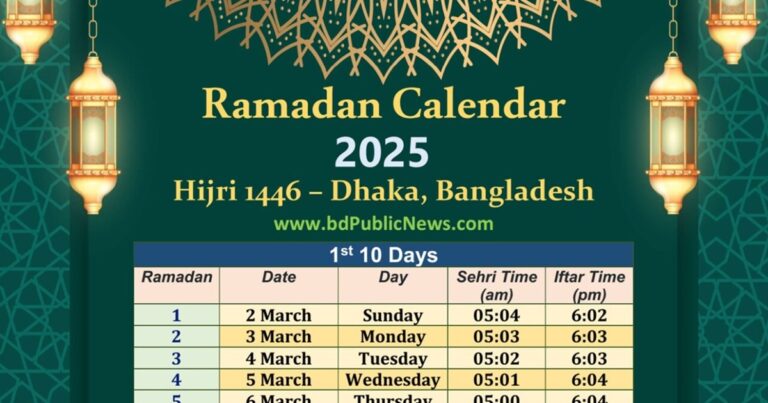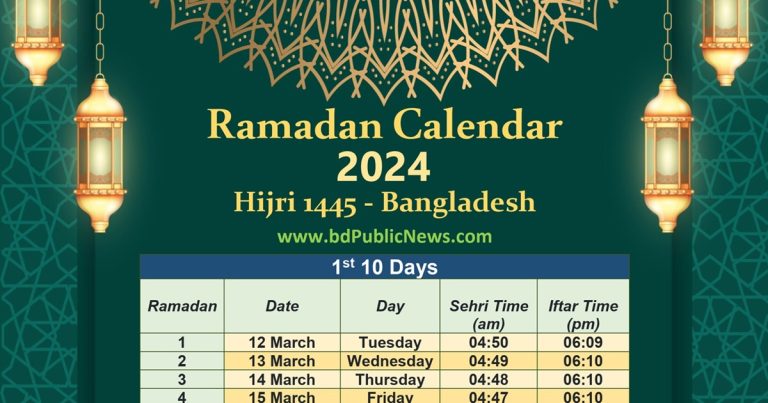26 March: Independence Day of Bangladesh
March 26 is a monumental day in the history of Bangladesh, marking its Independence Day. This day commemorates the country’s declaration of independence from Pakistan in 1971 and the start of the Bangladesh Liberation War. The day is observed with profound respect and fervent patriotism throughout the country.
The origins of this day trace back to the late night hours of March 25, 1971, when the Pakistani military launched a devastating crackdown on the then-East Pakistan, an event infamously known as Operation Searchlight. The operation aimed to suppress the rising Bengali nationalist movements that were demanding equal rights and self-determination. However, the brutal military action only intensified the Bengali demand for independence.
On March 26, 1971, Sheikh Mujibur Rahman, the leader of the Bengali nationalist movement, issued a historic declaration of independence, marking the beginning of Bangladesh’s quest for sovereignty. This proclamation galvanized the Bangladeshi populace into a unified resistance that would lead to a nine-month-long war against the Pakistani military.
Independence Day in Bangladesh is a national holiday, observed with flag-hoisting ceremonies, parades, cultural shows, and speeches. It is a day to remember the sacrifices made by millions of Bangladeshis who fought for their country’s freedom and to reflect on the continued journey of nation-building and development.
Throughout the country, the national flag is proudly displayed in government buildings, public areas, and private residences. The day serves not only as a reminder of the struggles faced in achieving independence but also highlights the cultural and historical identity of Bangladesh. The spirit of Independence Day resonates with the values of resilience and unity, echoing through the generations that continue to shape Bangladesh’s future.
26th March: A Tribute to Bangladesh’s Journey of Freedom and Resilience
Every year on March 26th, Bangladesh erupts in a vibrant celebration of its Independence Day, commemorating its emergence as a sovereign nation in 1971. This day not only marks the country’s liberation from Pakistani rule but also honors the valiant struggles and sacrifices of millions who dreamt of a free, democratic Bangladesh.
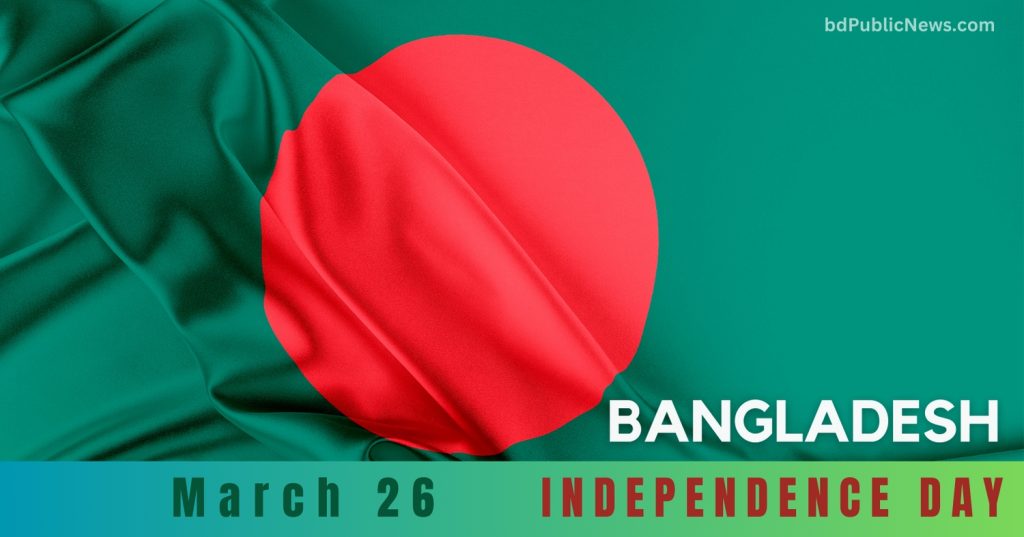
Historical Prelude: The seeds of Bangladesh’s Independence Day were sown in the disparity and discord between East and West Pakistan. Despite sharing religious ties, the two regions were starkly different in culture, language, and economic status. East Pakistan (now Bangladesh) was predominantly Bengali-speaking and felt increasingly marginalized by the dominant political powers in West Pakistan.
The 1970 Election and the Struggle for Autonomy: The political landscape changed dramatically with the 1970 general elections. The Awami League, led by Sheikh Mujibur Rahman, emerged as a champion for the Bengali cause, winning a landslide victory. However, the refusal of the ruling authorities in West Pakistan to transfer power sparked mass discontent and calls for autonomy.
The Night of March 25th – The Catalyst: Tensions reached a breaking point on the night of March 25, 1971, when the Pakistan Army launched Operation Searchlight in Dhaka. This brutal military crackdown aimed to suppress the Bengali nationalist movement but instead ignited the flames of independence.
Declaration of Independence: In the early hours of March 26th, Sheikh Mujibur Rahman declared the independence of Bangladesh. This declaration was more than a political statement; it was a clarion call to the people of East Pakistan to stand up for their rights and freedom.
The Bangladesh Liberation War: What followed was a grueling nine-month-long war of liberation. The Mukti Bahini, a guerilla resistance force, alongside regular army units, engaged in fierce battles against the Pakistani military. The war was marked by extreme brutality, including genocides and crimes against humanity, leaving deep scars in the national psyche.
Victory and Aftermath: The war culminated in the victory of the Bangladesh Forces on December 16, 1971, a day now celebrated as Victory Day in Bangladesh. The price of this triumph was steep, with casualty estimates ranging from hundreds of thousands to multiple millions.
Celebrating Independence Day: Today, Independence Day is a national holiday in Bangladesh, observed with deep respect and patriotic fervor. The day begins with a 31-gun salute in the capital, Dhaka, followed by the President and Prime Minister laying wreaths at the National Martyrs’ Memorial.
The entire country is adorned with the national flag, and buildings are illuminated in the evening. Parades, cultural programs, and exhibitions showcase the country’s history and cultural heritage. Educational institutions host debates, discussions, and cultural events, fostering a sense of national pride among the younger generations.
Reflection and Remembrance: Independence Day is also a day of reflection and remembrance. It is a time to honor the memory of those who sacrificed their lives for the nation’s freedom. Families of freedom fighters and martyrs are honored in various ceremonies, and stories of their bravery are retold, keeping the spirit of the liberation war alive.
The Significance of Independence Day: Independence Day acts as a testament to the resilience and determination of the Bengali people. It underscores the importance of unity, national identity, and the continuous struggle for justice and democracy. The day also serves as an inspiration for future generations to uphold the values of freedom and sovereignty.
Independence Day in Bangladesh is a national holiday marked by flag hoisting, parades, cultural events, and public addresses. It’s a day that resonates with the spirit of nationalism and pride, reminding us of the price paid for freedom and the responsibility to safeguard it for future generations.

